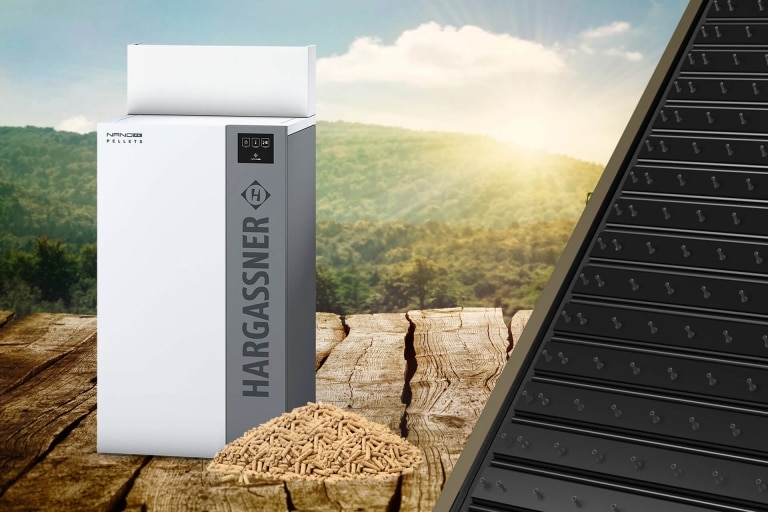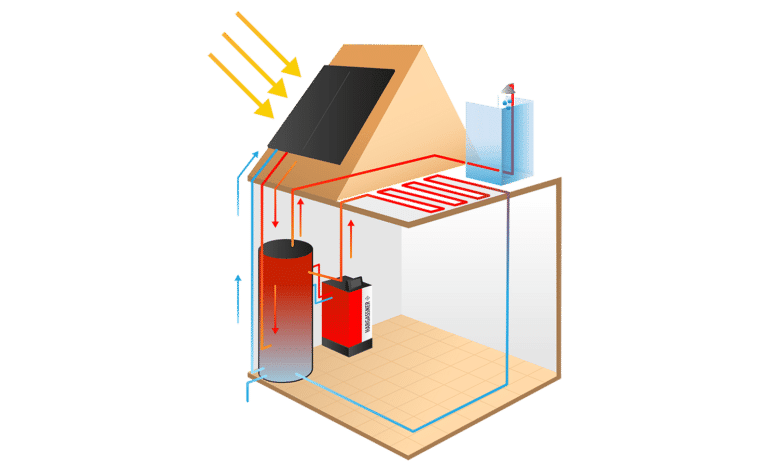Save costs & protect the environment with a pellet hybrid heating system
It all comes down to the right combination: Various biomass heating systems and biomass with solar energy go hand in hand today. Hybrid heating systems, i.e. combining different energy sources, promise maximum flexibility and security of supply with low costs and low environmental impact.
With these climate-neutral heating technologies, you can benefit from long-term stable market prices. With a hybrid solution, the strengths of the different energy sources complement each other, giving you worry-free heating without a guilty conscience.

How does a pellet hybrid heating system work?
Hybrid heating systems can, in principle, combine different heating solutions.
For example, the Hargassner combi boiler allows combining a pellet boiler with a wood log boiler. Integrating is also a common practice with a pellet boiler and a solar panel.
Both heating systems contribute thermal energy to a shared storage tank employed for heating the house. During sunny periods, the solar thermal system primarily supplies the heating circuit. Additionally, the pellet boiler automatically engages when solar energy alone is insufficient. Pellet hybrid heating systems can provide both space heating and hot water.

Why choose a pellet hybrid heating system?
There are several compelling advantages to using pellet hybrid technology. In general, these advantages encompass environmental benefits on one hand and economic benefits on the other.
Pellet boilers have been widely recognized as climate-neutral since they utilize renewable raw materials that sequester CO₂ during their growth. According to a study published in spring 2023, heating with pellets can reduce CO₂ emissions by 95 per cent compared to oil heating.
This reduction includes the production, transportation, and combustion of pellets made primarily from sawmill waste. Moreover, the increased efficiency of modern pellet boilers and using high-quality fuel contribute to mitigating “fine dust” concerns. Combining them with thermal solar energy in biomass heating systems further enhances their environmental friendliness. Notably, solar panels operate without emitting any greenhouse gases during their operation.

Hybrid pellet heating system: Costs remain low
While market prices for oil and gas have become unpredictable, and the security of supply for these fossil fuels is a concern, pellets remain a reliable energy source. In contrast to fossil fuels, Austria can meet its pellet demand and has over 40 domestic production sites.
When we examine the price development, it shows a high degree of stability. The raw material price has consistently remained low over the past ten years, while other energy sources have experienced turbulent times with significant price fluctuations. Pellet prices experienced a temporary rise in 2022; however, biomass remains much more cost-effective than electricity, gas, and heating oil. These factors make hybrid pellet heating equally appealing from a cost and environmental perspective.


